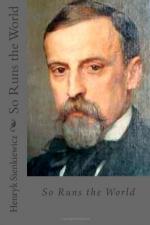I do not know whether any one has paid attention to Zola at this aut aut! It is sure that he never thought of it himself. Probably it would not have had any influence, as the criticisms had no influence on his theory of heredity. Critics and physiologists attacked him ofttimes with an arsenal of irrefutable arguments. It did not do any good. They affirmed in vain that the theory of heredity is not proved by any science, and above all it is difficult to grasp it and show it by facts; they pointed in vain that physiology cannot be fantastical and its laws cannot depend on the free conception of an author. Zola listened, continued to write, and in the last volume he gave a genealogical tree of the family of Rougon-Macquart, with such a serenity as if no one ever doubted his theory.
At any rate, this tree has one advantage. It is so pretentious, so ridiculous that it takes away from the theory the seriousness which it would have given to less individual minds. We learn from it that from a nervously sick great-grandmother grows a sick family. But the one who would think that her nervousness is seen in descendants as it is in the physical field, in a certain similar way, in some inclination or passion for something, will be greatly mistaken. On the contrary, the marvellous tree produces different kinds of fruit. You can find on it red apples, pears, plums, cherries, and everything you might desire. And all that on account of great-grandmother’s nervousness. Is it the same way in nature? We do not know. Zola himself does not have any other proofs than clippings from newspapers, describing different crimes; he preserved these clippings carefully as “human documents,” and which he uses according to his fancy.
It can be granted to him, but he must not sell us such fancy for the eternal and immutable laws of nature. Grandmother did have nervousness, her nearest friends were in the habit of searching for remedies against ills not in a drug-store, therefore her male and female descendants are such as they must be—namely, criminals, thieves, fast women, honest people, saints, politicians, good mothers, bankers, farmers, murderers, priests, soldiers, ministers—in a word, everything which in the sphere of the mind, in the sphere of health, in the sphere of wealth and position, in the sphere of profession, can be and are men as well as women in the whole world. One is stupefied voluntarily. What then? And all that on account




